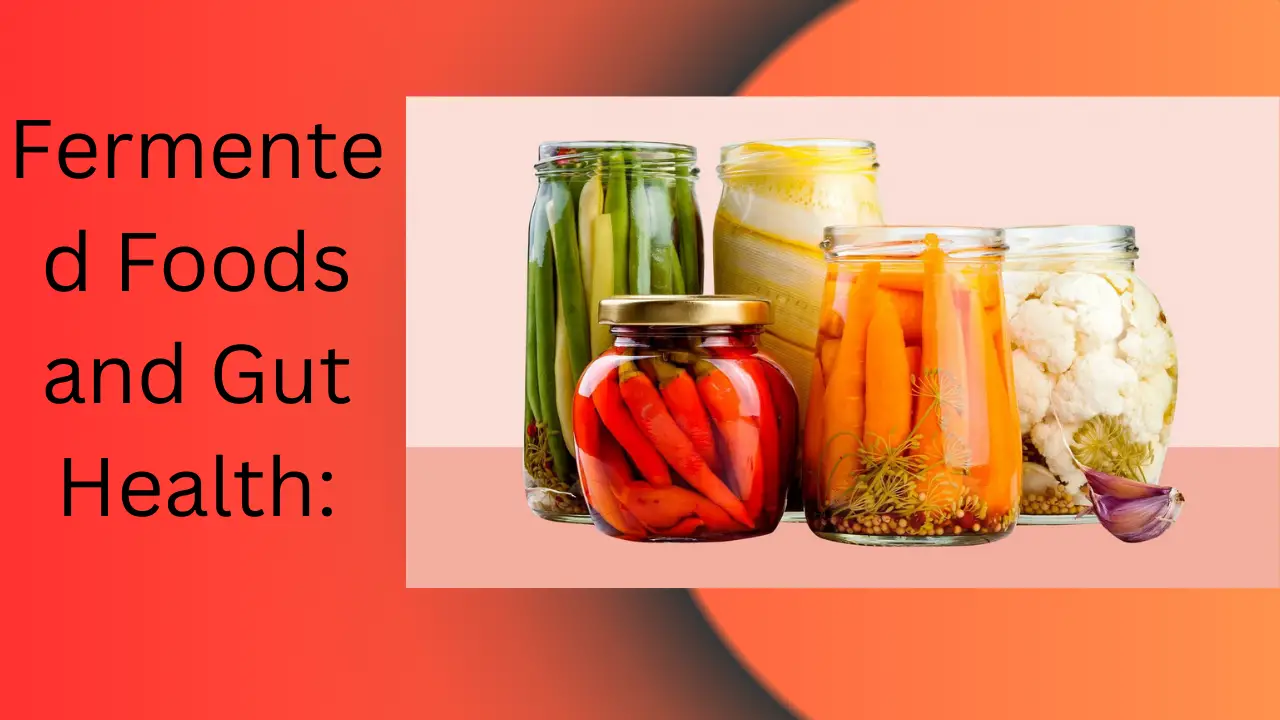
Black+Decker dustbuster QuickClean Cordless Handheld Vacuum (HNVC215B10)
$29.99 (as of July 13, 2024 02:14 GMT +00:00 - More infoProduct prices and availability are accurate as of the date/time indicated and are subject to change. Any price and availability information displayed on [relevant Amazon Site(s), as applicable] at the time of purchase will apply to the purchase of this product.)Fermented Foods and Gut Health
Do you want to boost your overall wellbeing? Look no further than the gut! Yes, you heard it right – your gut health plays a pivotal role in how you feel physically and mentally. In this article, we’ll dive into the fascinating world of fermented foods and their impact on gut health. From improved digestion to a stronger immune system, fermented foods can work wonders. So, let’s unravel the secrets of this culinary alchemy!
The Role of Gut Health in Overall Wellbeing
Before we delve into fermented foods, it’s essential to understand why your gut health matters. Your gut is like the control center for your body’s functions. It’s where nutrients are absorbed, and it houses trillions of bacteria, both good and bad. When the balance of these microorganisms is disrupted, it can lead to various health issues. Gut health is closely linked to immunity, digestion, and even your mood. So, maintaining a happy gut is vital for overall wellbeing.
What Are Fermented Foods?
Fermented foods are not just the latest food trend; they are age-old culinary treasures. These foods undergo a natural process called fermentation, where microorganisms like bacteria, yeast, or fungi break down food components. The result? Foods with unique flavors and enhanced nutritional profiles. Examples of fermented foods include yogurt, kimchi, sauerkraut, kefir, and kombucha.
How Fermentation Works
Curious about the magic behind fermentation? It all starts with microorganisms consuming sugars and converting them into acids or alcohol. This process not only preserves the food but also enhances its taste and nutritional value. The live cultures in fermented foods are what make them so beneficial for your gut. These friendly bacteria, often referred to as probiotics, can have a profound impact on your digestive system.
Benefits of Fermented Foods
Improved Digestion
Fermented foods are digestion’s best friends. They contain probiotics that promote a healthy balance of gut bacteria. This balance can aid in better digestion, reducing issues like bloating, gas, and constipation. If you’ve ever experienced digestive discomfort, incorporating fermented foods into your diet might be the solution.
Enhanced Nutrient Absorption
Your gut plays a crucial role in absorbing nutrients from the food you eat. Fermented foods not only provide essential nutrients but also improve their absorption. The probiotics in these foods can help your body make the most of the vitamins and minerals you consume.
Boosted Immune System
A robust immune system is your body’s shield against illnesses. Fermented foods can fortify this shield by supporting the gut’s microbiome. A well-balanced gut can better fight off pathogens and keep you healthier.
Mood and Mental Health
Believe it or not, your gut can influence your mood and mental health. The gut-brain connection is a hot topic in research, and it’s becoming clear that a healthy gut can contribute to reduced stress and anxiety. So, eating fermented foods might not only make your tummy happy but your mind too!
Incorporating Fermented Foods
Now that you’re convinced of the benefits, you might wonder how to incorporate fermented foods into your diet.
Homemade Fermented Recipes
One of the best ways to enjoy the goodness of fermented foods is by making them at home. Try your hand at crafting homemade yogurt, kimchi, or pickles. It’s a fun and rewarding culinary adventure.
Store-Bought Options
If DIY isn’t your thing, no worries! You can find a variety of fermented products in your local grocery store. Look for labels that say “live cultures” or “probiotics” to ensure you’re getting the maximum benefits.
Potential Side Effects and Precautions
While fermented foods offer numerous advantages, it’s essential to be mindful of potential side effects.
Overconsumption Risks
Consuming too many fermented foods at once can lead to digestive discomfort. Start slowly and increase your intake gradually to allow your gut to adjust.
Allergies and Sensitivities
Some individuals may be sensitive to certain fermented foods, particularly those with allergies to specific ingredients like dairy or soy. Be aware of any adverse reactions and consult a healthcare professional if needed.
Conclusion
Fermented foods are more than just tasty treats; they are a key to better gut health and overall wellbeing. By incorporating these probiotic powerhouses into your diet, you can enjoy improved digestion, enhanced nutrient absorption, a stronger immune system, and even a happier mood. So, go ahead and explore the world of fermented foods – your gut will thank you!
Frequently Asked Questions
1. Are all fermented foods equally beneficial for gut health?
- No, different fermented foods contain various strains of probiotics. It’s a good idea to diversify your intake for maximum benefits.
2. Can I eat fermented foods if I’m lactose intolerant?
- Yes, many fermented foods are lactose-free or have minimal lactose due to the fermentation process. However, always check product labels for any potential traces of lactose.
3. How often should I consume fermented foods?
- There is no one-size-fits-all answer. Start with small servings a few times a week and adjust based on how your body responds.
4. Are fermented foods suitable for children?
- Yes, fermented foods can be included in a child’s diet, but be mindful of their preferences and any potential allergies.
5. Can I overdo it with fermented foods and have too much of a good thing?
- Yes, excessive consumption of fermented foods can lead to digestive discomfort. Moderation is key, especially if you’re new to them.











